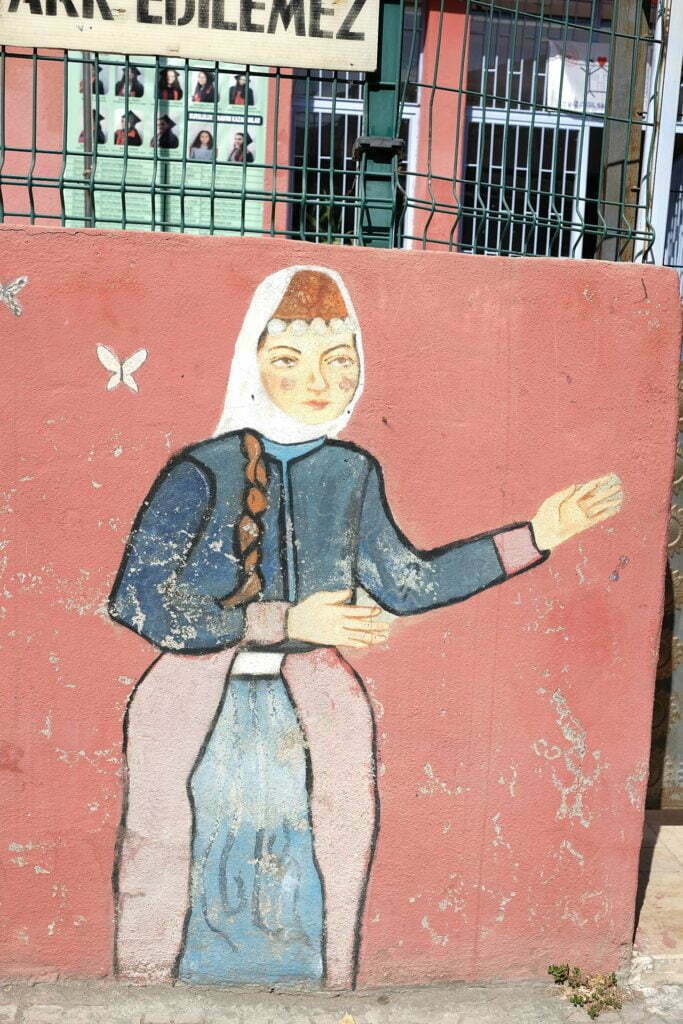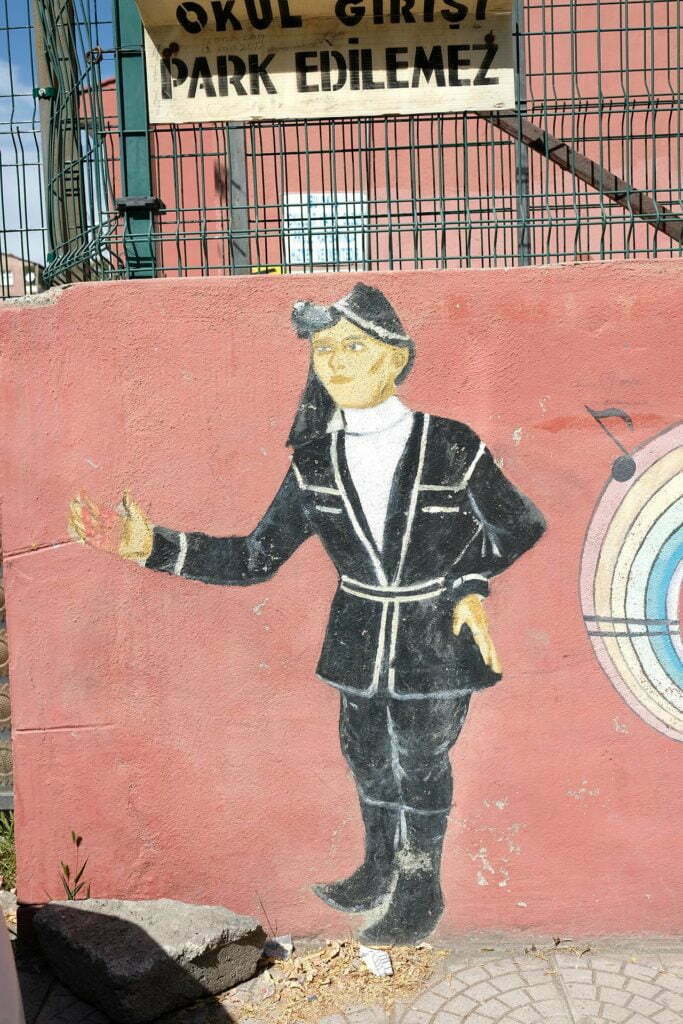SİNAN ERENSÜ
Barış Demirci, a lawyer from Yusufeli, was a candidate from the Republican People’s Party (CHP) in the 2019 Municipal Elections. The election resulted first in the recounting of the votes and then it was repeated. Demirci talks about the election process that increased the votes of CHP from 8% to 45% in Yusufeli where the Justice and Development Party (AKP) won the elections by a narrow margin, the changing face of Yusufeli after the construction of the dam, and the experiences of the displaced people of the region.
September 2019
Could you please talk a little bit about yourself?
I was born and raised in Yusufeli. My father was also born and raised here. After my grandparents and other elder relatives settled here, Yusufeli became a district in 1950. When asked, everyone’s hometown is unique and beautiful for them. Perhaps people who are outsiders might find the social life in Yusufeli limited and thus get bored; however, since we were born and raised here, we find Yusufeli utterly beautiful.
Here, one of the biggest projects in Turkey, the Yusufeli Dam and hydroelectric power plant (HES) is being constructed. The construction of the dam began rather swiftly in 2012-2013. This project dates to 40-50 years ago, but the construction began with this government. Of course, it brought with it issues and problems for the locals. Before the construction works began, we voiced what kind of grievances and problems we would face at every panel or gathering. We delivered our opinions about what kind of measures should be taken by the officials. That said, at this current stage, unfortunately, we live through and witness the destruction the people of Yusufeli and the region are undergoing. We are witnessing and living through this destruction in worry.
This is a state project undertaken with economic motives. It surely is not more important than the well-being of human beings or nature. It is wrong to aggrieve and victimize people in a project that is aimed at making money.
This is a state project undertaken with economic motives. It is surely not more important than the well-being of human beings or nature. It is wrong to aggrieve and victimize people in a project that is aimed at making money. Yusufeli, with its tiny population and small area, is a district that we can define as a drop in the bucket when compared to the rest of our country. That we are being aggrieved by the state officials and the uncertainties about the future of people living in Yusufeli are hanging above us like dark clouds. And yet, to this date, nothing has been done about this issue.
What kinds of uncertainties trouble Yusufeli?
The uncertainties pertain to things like what kind of a life people will have when they settle in a new location or the economic, educational, and healthcare needs of Yusufeli people. We are not informed about these issues. The ownership rights, the buildings, and projects in new settlements are not good enough for the locals of this region. While an average of 100-150,000 TL is given in exchange for the apartments in the areas expropriated for the Yusufeli Dam, the cost of flats of the same standards to be built in the new settlement is about 300-350,000 TL. These are the pre-crisis numbers. Given that the costs will increase, it is obvious that these numbers will increase. It is necessary to expand the conditions of ownership.
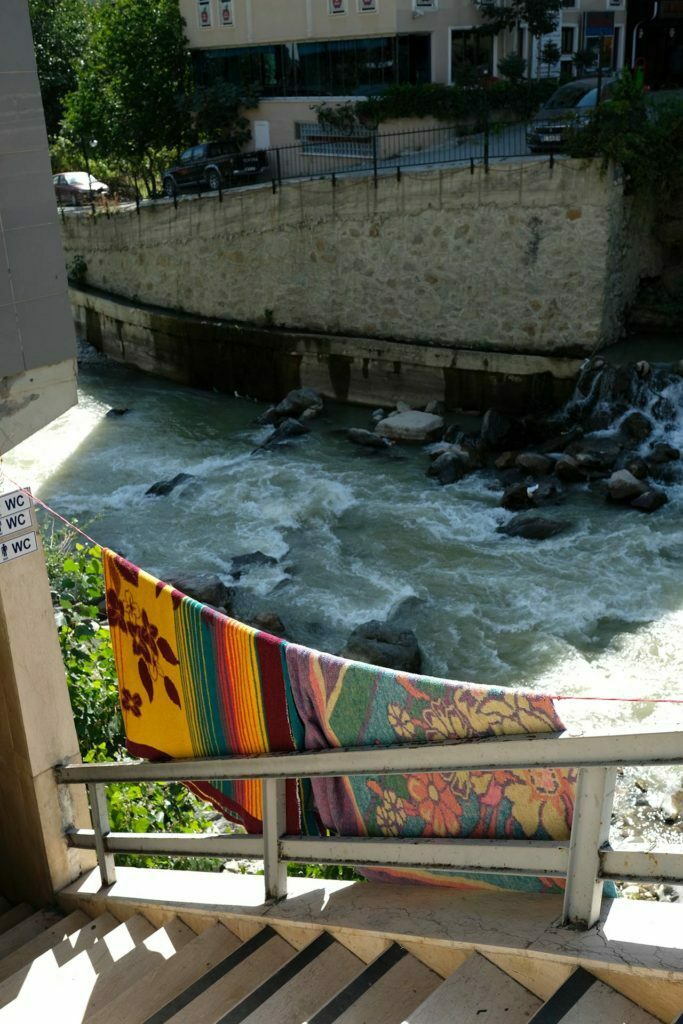
If we aim to pursue the wellbeing and welfare of people who will move to these new areas, then we first have to be able to keep people here. What do we do to keep people here? You cannot keep people here only with new buildings. You must expand ownership as much as you can, and as a state you must sponsor it so that people can stay here. It is possible to build a university here, tourism can be promoted.
The last time state officials showed up here, they announced that “the dam will start producing electricity in 2021.” I am talking about the announcement made by the Presidency. As they say, there are two more years to go. What are we going to do after two years? Where will we live? Even if the construction of the new settlement area is completed in two years, there will still be many things left uncompleted. Even the resettlement of this district in the new area would take a year. We are in a hustle here.
Another problem that the people of Yusufeli face is disinformation. Indeed, we are not informed about anything, we hear and learn things through gossip. The local administration’s discourse is limited to “we do the good things, the government does the bad things, we cannot outdo the bureaucracy”. We are ready to gather around the same table and take responsibility but so far, we were not able to come together.
How can people pay twice the money that they received when their property was expropriated, when, as in many parts of Turkey, there is poverty and unemployment problems in Yusufeli?
This is a very good question. These buildings for which 100-150,000 TL are given were recently built, they are 5 to 10 years old. These would amount at most to one-third of the buildings in Yusufeli. The owners of other buildings that are older do not get that much. There are buildings for which 60,000 or 80,000 and even 50,000 TL are given. The guy living in one of those houses has a small garden. He grows his own tomato, cucumber, pepper, and eggplant. He can sustain his livelihood even in that small house. But you put that guy under the responsibility of paying 400,000 TL. How could he pay that amount of money? Leaving aside not being able to pay that amount of money, he will leave his relatives in debt for generations. Unfortunately, the signatures of current officials are on these papers.
But you put that guy under the responsibility of paying 400,000 TL. How could he pay that amount of money? Leaving aside not being able to pay that amount of money, he will leave his relatives in debt for generations. Unfortunately, the signatures of current officials are on these papers.
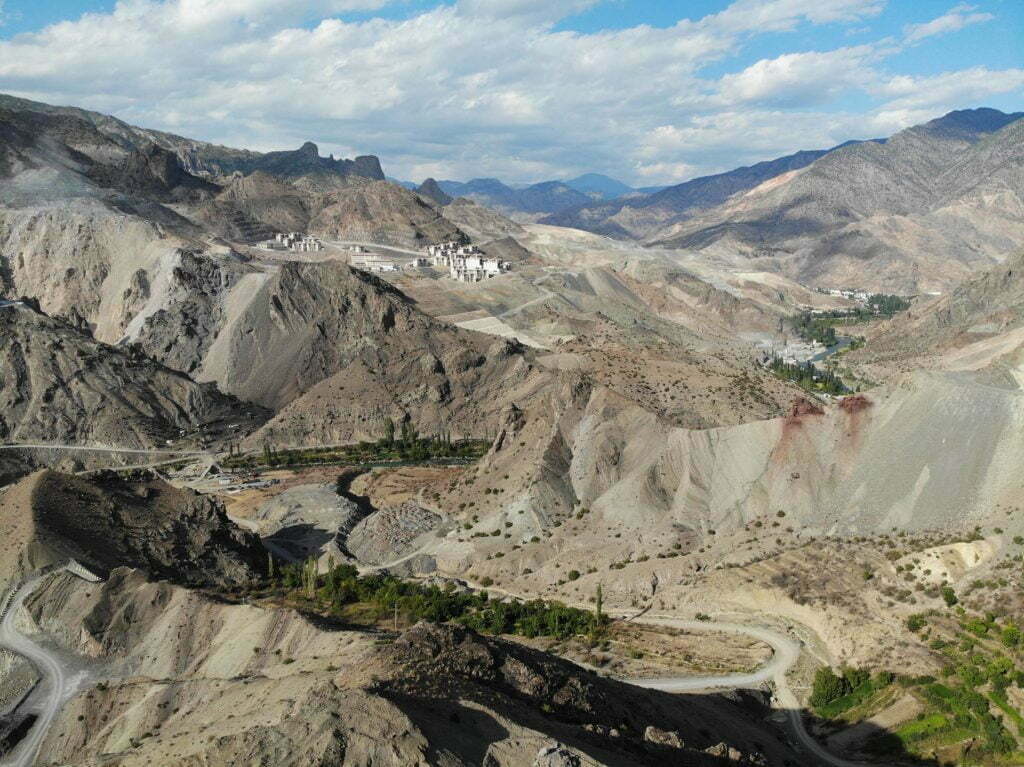
For those who are not familiar with Yusufeli and the new settlement, maybe we can add that cultivating the soil and growing tomatoes is not easy there.
In the new settlement area, we do not have any land to cultivate. Actually, we are 271 houses down in the total number of residences for which ownership is secured. They cannot find the land where we can build the houses. Therefore, new tenders will be initiated, new land will be opened for construction, and new residence tenders will be made. This is how things look in the new settlement area. We cannot even do this, let alone cultivate the land. Therefore, people will have to live dependent on outside products. Unfortunately, none of those beautiful vegetables will exist. When we look at the area that is to be expropriated, 80% of the agricultural land will be submerged. It will not be a common practice to grow vegetables at higher altitudes.
Can the locals of Yusufeli see the new settlement area or contribute to the planning of the houses?
Before the local elections on March 31, 2019, the mayor organized many visits to the area. He took the locals there, showed them the place and the residences. Since it is a construction site, one must have permission to access the area. People saw their residences and 80%-90% of the locals openly expressed their discontent about the new buildings. 130 residences were already constructed by that time. They said, “we understood our shortcomings in this area, we will be more careful with the other areas but there is nothing to be done for these buildings.” The state is interrupting the lives of people in Yusufeli, but all we want is to be able to live according to our current standards. We do not demand anything extra. They should provide us with our current wellbeing and social life. That is all we want. However, at the moment, we are facing grave troubles.
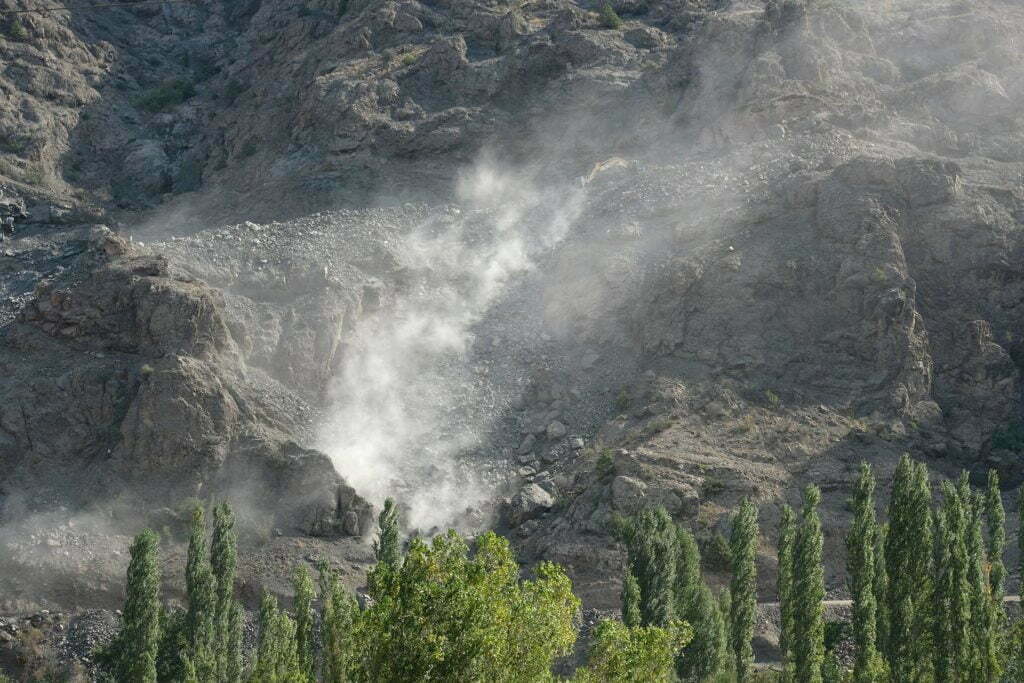
What kinds of troubles?
A 170-meter-long viaduct that will link the intercity highway to the new district center will be built in the middle of the city. Although the construction of the new settlement is not finished yet, the expropriation processes for this viaduct at the center of Yusufeli have been finalized. They hastily seized the land, and they can evict people any time now. There is no information as to where the people who live there, the shopkeepers who have businesses in the area and public buildings will be relocated. They are telling us that they will soon start the evictions. The new settlement area needs two to three years to be completed. There isn’t even running water there. Even if they initiate a tender today, it will take two years for the water infrastructure to be built. They are evicting the shopkeepers on grounds of the construction of the viaduct. They are turning Yusufeli and its villages into a construction site. Nobody has the right to force us to live in a construction site filled with dynamite dust for ten years
They are turning Yusufeli and its villages into a construction site. Nobody has the right to force us to live in a construction site filled with dynamite dust for ten years.
The state should have already finished the construction of the new settlement area in order not to leave us in this situation. They should have first finished it and should have started the construction works of the viaduct after we moved into the new residences. This is not something difficult to manage, it was doable; however, they made a timing error. We are speaking up about these things on every occasion. Right before the elections, they were severely criticized for the trouble they caused and they said, “we will not cause distress for anyone.” At this current stage, evictions have begun. There are family cemeteries at the foot of the viaduct. They asked the relevant people to remove the cemeteries in one week. It has already been three days.
The construction of not only the viaduct, but the settlement, connection roads, and dams are in progress. What kind of inconveniences do these constructions cause for Yusufeli?
We traveled here together. We got stuck in the heavy traffic together. We are living through this 24/7. The earth movers are passing through the center of the city. People escort their children, even those who are older, to the schools, holding their hands. The parents are worried that their children might get run over by an earth mover. We not only have a traffic problem here, but also environmental, health, and air pollution problems. You get your car washed, and in an hour, you find it covered with dust. The same applies to our houses; we clean them and in an hour the house is filled with dust. People cannot sit on their balconies. We breathe poison here. Yes, we might not be aware of this in the short run. However, in the long run they are taking 10 years from our lives.
People escort their children, even those who are older, to the schools, holding their hands. The parents are worried that their children might be run over by an earth mover.
We see this clearly with the plants. In fruits and vegetables, we used to get 100% yield. This rate has dropped to 20%-30% lately. Air pollution is the reason for this decrease. We can scientifically determine this rate in the plants very clearly, but who will take the responsibility of and pay for the damage that has been done to people?
Here, we, as newborn babies, children, young people, old people, breathe the same air. And not a single scientific research has been conducted in this region. Nothing has been done to determine what the harm is on human beings and how it affects our bodies. They don’t want to do it. And if someone does this kind of research, they will not take it seriously. We know this very well. For them what matters is to complete this project as soon as possible. They are interested in relocating Yusufeli. Who stayed or who left are not questions that are important to them. This is what makes us sad.
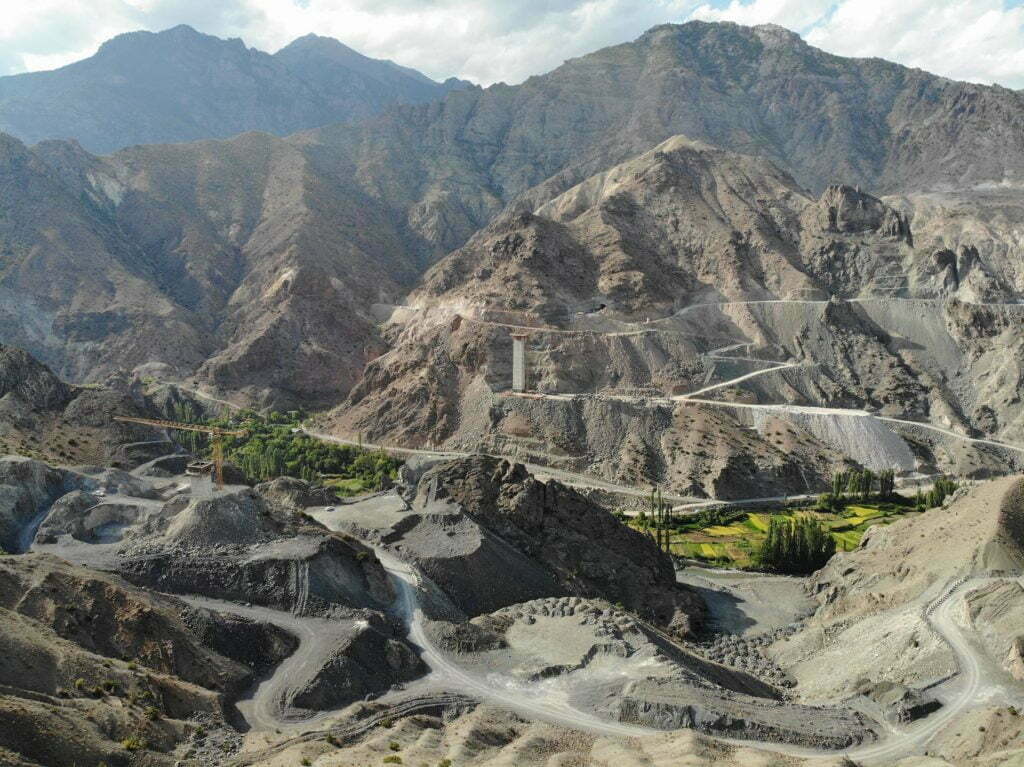
How are shopkeepers in Yusufeli faring? What are they thinking?
More than 80% of the people who are involved in trade in Yusufeli are tenants. What does this mean? They do not own the property. They place shelves inside and sell their goods. It might be grocery products or hardware or anything. It is obvious that he inherited this business from his father, he has been doing this business for 60 years. These people have customers. Then expropriation starts and everywhere is flooded. The property owners get their shares. But what about the shopkeepers? These people have been involved in trade and commerce for 50 or 60 years; they have built up their portfolios and have been earning income from this business and feeding their families. What does the state do for these people? A big nothing, it does not do anything. These people get nothing in return and the current expropriation law is in no position to respond to this problem anyways.
Let me give you an example of this hotel we are in right now. The immovable property belongs to the owner. He will get his share of the immovable when it is expropriated. Inside this hotel, there are movable materials from armchairs, wardrobes to beds which would cost two million in total. Unfortunately, all these things are worth nothing. Nothing is paid in compensation for these things. Expropriation law regulates the immovables. When will this problem be solved? This is one of the obvious examples. It is an example that is valid for anyone dealing with trade in Yusufeli. Since you do not have a chance to build another place with the same standards, you will be left with all these materials in your possession. The owner of this business will lose three million Turkish Liras. Even if he decides to sell, who will buy all this stuff? They will be sold for nothing. If he decides to keep them, where will he use them later? We have serious problems like this one as well.
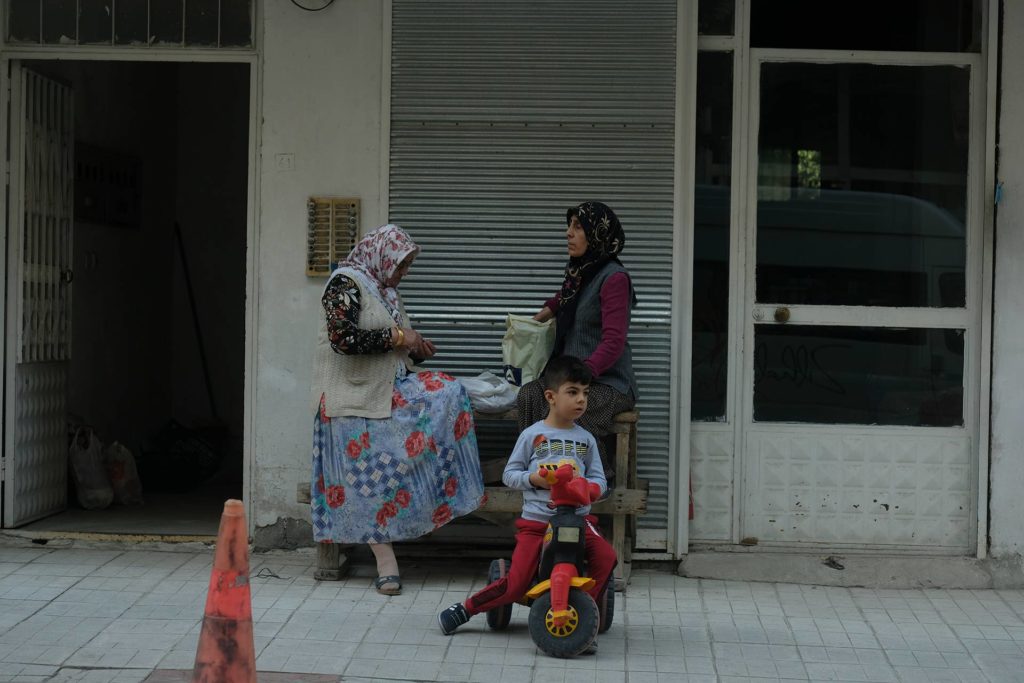
Are you expecting a decrease in the population of Yusufeli during this process?
If the population decreases, the future of Yusufeli will be jeopardized. That said, we do not think that it is possible for people to stay here. However, life outside is not easy at all, people cannot find the courage to leave. Stuck in between, people are pessimistic and just waiting, not knowing what to do. I am in the same situation. We have diplomas, we have jobs, we have the potential to do something in the places we go, but still, I can’t sleep at night. What will I do? Will the new settlement be sufficient for the education, health, social life of my children? If we leave Yusufeli and move to another place, what will I do there? What kind of a life is awaiting me? As I am asking these questions, other people from Yusufeli should also ask them. And they are thinking about these things. But there is no answer. The state needs to step in.
A company was building a dam over the river Çoruh. I do not want to give its name now. I am the lawyer of the region; I am undertaking cases of expropriation. They sent two consultancy specialists. These specialists lived together, slept together, ate together with the locals. How do the locals live? What are the effects of the dams on these people? The company that built this dam had conducted research that inquired into what kind of help would have a positive effect on the social lives of the locals. In the district of İspir, in addition to the price offered for expropriation, the company gave everyone who resides in that neighborhood a flat. The flats are all equipped. At every religious holiday, the inhabitants are also given checks amounting to five thousand Turkish Liras, the amount given may have been increased recently. A private company does this. Isn’t the state more powerful than this private company? You know, there is this destruction caused by the pessimism and worries about the future that took hold of the people and when are we going to analyze this?
It is necessary for experts to come here, get together with people and draw a roadmap now. What is at stake is not material or physical conditions. They are completely destroying a history, a culture. Will the street where I fell and hurt my knees when I was growing up no longer exist? The street where I fell, sat down, and got up will no longer exist. We have real problems in terms of solving and mitigating the kind of destruction this causes for me and for my world.
Will the streets where I fell and hurt my knees when I was growing up no longer exist? The street where I fell, sat down, and got up will no longer exist. We have real problems in terms of solving and mitigating the kind of destruction this causes for me and for my world.
You have previously mentioned that tenders were not transparent. How was the tender initiated and made?
The law enacted by the cabinet states that “the price of the buildings that will be given to the locals of Yusufeli will be determined based on the cost of the buildings.” This means that we will pay the price for the flats based on the amount determined in the tender. However, nobody talks about the amounts that are determined in the tenders. There is also no information about the regions or the neighborhoods that will be expropriated. Officials from the General Directorate of State Hydraulic Works sit at their offices in the center of Artvin and think that “If anyone from Yusufeli goes bankrupt or in debt, they can come to me and buy his place in exchange for the amount I set. Whenever one of the people of Yusufeli is sick or in need of help, he can come to me and buy his place in exchange for the amount I set.” This attitude does not suit the rationale or propriety of the state. Yes, there are some people who sell their places after they reach a settlement, and their number is not that small. Believe me, most of them give away their places not because the numbers paid are satisfactory, they do so because they think of covering their needs.
The state must set the expropriation process in order. They should provide the people with the information about which parcels will be opened to expropriation as well as when this would take place. For instance, they are going to start the evictions for the viaduct, but there is no information about planning. We cannot reach authorities either. The authorities are not around. We do not know whom to ask and we don’t know what we can ask. When we ask them, they reply to us with the answer “it is out of our jurisdiction” and refer us to another institution. A supreme commission that coordinates the whole process should be established, and this commission should involve persons who can actively and effectively represent the people of Yusufeli. It is also necessary that people should be provided with true information.
Another issue concerns whether the inflation rates would be reflected in the prices of the buildings constructed in the new settlement area. The law stipulates that “no interest will be charged.” But interest and inflation are two different things. TOKİ is building the buildings in the new settlement area. In Turkey, in the buildings constructed by TOKİ, interest rates are not charged. However, they reflect in the prices of the buildings the changing inflation rates yearly. They say that this will not be done. And we are saying that if you are not going to implement this, they show us the legislation that stipulates this decision. Unfortunately, we do not see any development regarding this end.
How did you decide to become a mayoral candidate?
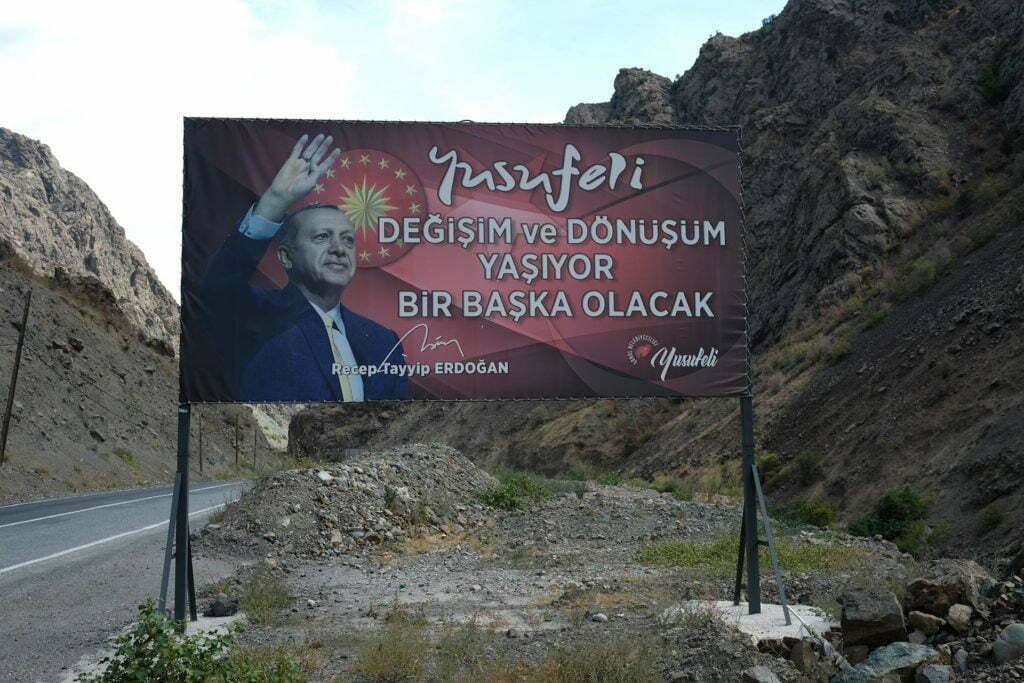
I have been working as a lawyer in the district for the past eleven years. Thanks to Allah, our business is in order. I have also been actively involved in politics in the Republican People’s Party for ten years. For three years, I worked as an administrator and for six years, I worked as district head. In the municipal elections on March 31, 2019, I gave my resignation. I was not considering running for mayor. I was not interested in the status or the office. I am sincerely voicing this. I decided to run in the local elections in the last month before the nomination process. The reason behind my decision was the fact that the problems of Yusuefli, which are solvable, are swept under the rug with insincere approaches. If the local authorities were to approach these problems sincerely, the people of Yusufeli would have found some comfort. This is why I decided to run for the elections.
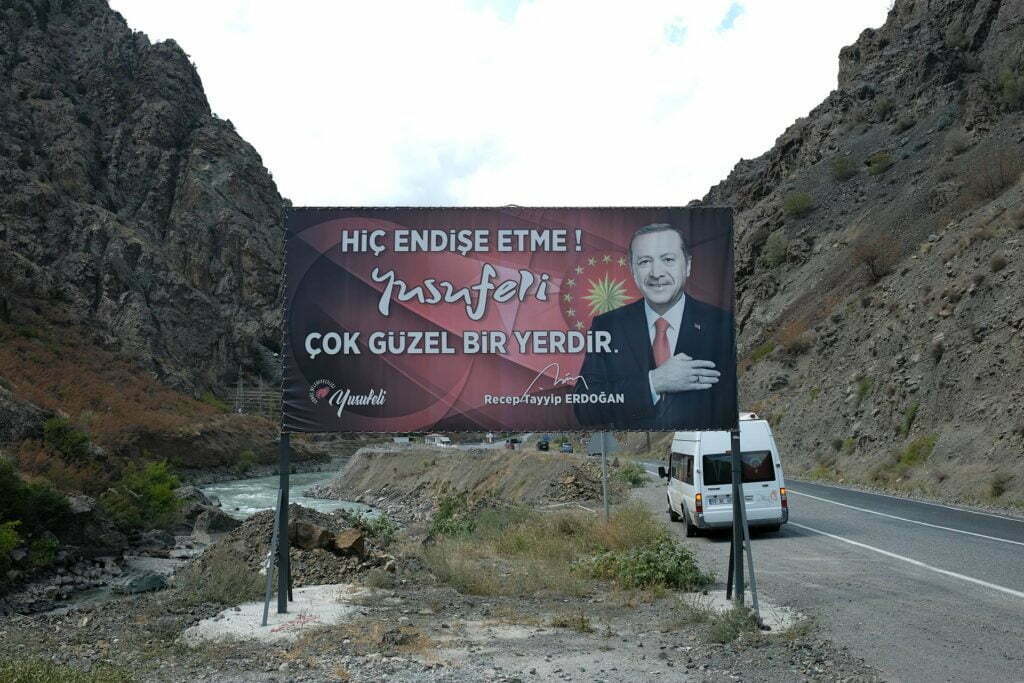
So, I ran as a candidate. During that process, we visited the locals’ houses and explained to the people of Yusufeli the issues and the possible solutions. We increased our vote which was %5 to %8 before the elections to %45.
In fact, during the March 31 elections, for the first two hours after the votes were counted, we won by six votes. They admitted that they lost by six votes and even made a statement. They objected to all the ballot boxes so that the votes could be counted again. After two hours, other issues became a part of the process. In the end, this process went as far as the annulment of the election. If our votes went from 5%-8% to 45%, this was not only our success but also an indication of the failure of the representatives of the government and the local government officials. They were doing wrong.
Do you think that the elections were head-to-head because the dam process was governed badly?
Certainly. The distress and grievances about the dam had a role in the result. In 2014, the Justice and Development Party (AKP) and Nationalist Movement Party (MHP) received 90% of the votes. These two parties together received 55% in the elections which were held on the 2nd of June. We received 45% of the votes. It is not right to dismiss their failure and act as if this is our success because people were in such a situation that they were not able to get any answers to their questions. We did what we could, we took on the responsibility.
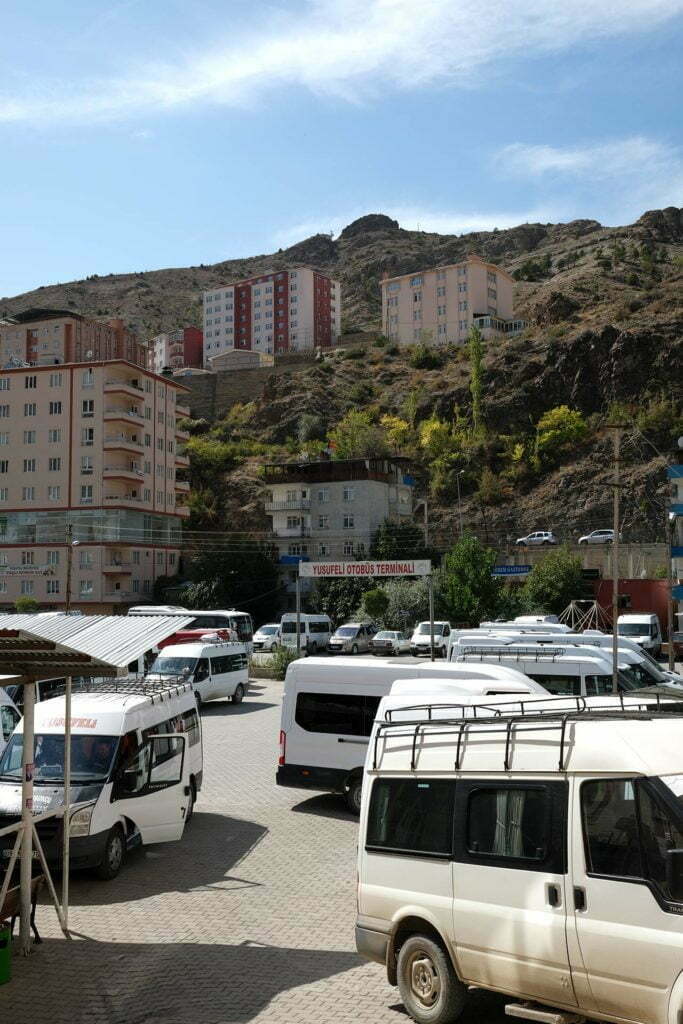
Most of the powerful people in Yusufeli, the shopkeepers, and the majority of those people who can talk about what is right and what is wrong supported us in the elections. The main reason why we lost the elections was that the representatives of the government used every means and resource offered by the state for their own interests. An example of these resources is the Turkish Employment Agency (İŞKUR). Whereas normally 30 or 40 people are hired, just before the elections, they spared all the positions in Artvin and in all its districts for Yusufeli. There were 700 people who applied to İŞKUR and 300 people were to be hired. They called these 700 people and told them “We are going to call off the hiring process, you will all be unemployed.” These are not ill-intentioned people, they are simple people who apply to İŞKUR. They are people in need. They see İŞKUR as a source of income, they do not have any other source. They do animal husbandry for two or three months a year. With what they earn in those months, they pay for the expenses of their children who study in the district. For the remaining months, they are dependent on the state and on the institutions that offer funds. They cannot risk that. And this is how they influence their will.
You have mentioned another issue about the expropriation processes.
In 2013, a change in the legislation pertaining to expropriation processes was made. The state starts taking aerial photographs of the regions where expropriation will be carried out in the name of public good. The 2013 legislation which will be in effect for five years stipulates that “no money will be paid for buildings constructed or trees built after the aerial photographs.” At the end of this sentence, it is stated that “this law can be prolonged for another five years by the Presidency.” In 2013, they took aerial photographs. Back then there were tenders in exchange for land. The construction projects were carried out on a build-and-sell basis. They were selling places based on construction blueprints. There are 280 such buildings that are half complete or of which only the rough construction is finished. The state is not paying for these buildings. Two days before the five-year period was over, in 2018, they prolonged the law with a presidential decree.
Now, I am asking you. If they claim to stand next to the people of Yusufeli, if they claim to refrain from politics and decisions that would victimize the people of Yusufeli, why did they extend the law for another five years? Either the administrators in higher positions are malevolent or the officials here are not doing their job. If they had talked to those in higher positions about the problems here, they might not have decided to prolong the period. These people may have invested their pensions here. They may have taken from their children’s share and invested here. They may have mortgaged their places and gotten loans. They may still be paying those loans. These people are not ill-intentioned. These people do not say “Let’s do these buildings so that we can take money for expropriation.” They bought these places when the projects were in the planning stage; I am talking about buildings whose construction had already begun before the law. And with the five-year prolongation decision they will not get paid for their houses. The state takes into consideration only what the photographs show. If only the construction of the building’s carcass has been completed, then even though the value of the house would be 100,000 TL, they offer 30,000-40,000 TL.
What are your demands?
They will make money out of Yusufeli; all of Turkey will make money. We are not against this. Look, I am emphasizing this. If the state will make money out of it, if all the people in Turkey will benefit from this project, we are all for it. But they should not victimize us. We do not want anything extra. We have already given up on that demand. We have already given up on compensation for our emotional grievances. We want them to preserve our current state. This is not something difficult. Believe me, it is not difficult. But as I said, for this to happen, we need sincere approaches. Attitudes such as “If I say this, I would lose votes. I would experience political problems” or “I do not want to be the one who relays the problems to those who are in higher offices. I do not want to be that politician” get the people of Yusufeli into great trouble. When they act like this, they are not serving the people of Yusufeli, they are betraying them.
